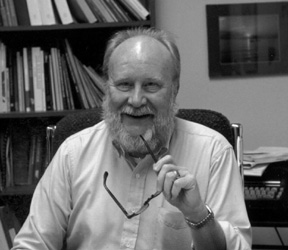Tom Horn and Chuck Missler have recently been vehemently criticized by Gaylene Goodroad of the Herescope website. While it is fair to say they are colorful characters, both men are committed Christians, strong advocates of dispensationalism and writers/producers of popular media. I have read and studied the works of both men. In fact, Chuck Missler’s Bible teaching had a lot to do with leading me to Christ. It should be said that he teaches the entire Bible not just prophecy and controversial subjects. Similarly, Horn has worked as a pastor and administratively at the top levels of the Assemblies of God denomination. They both believe Jesus will return sooner rather than later but to my knowledge neither set dates nor advocate doing so. Admittedly, they both take speculative and controversial stands that might be considered unconventional but I would not label either as heretical. I don’t agree with everything they write but I do find their work thought provoking and interesting. While there is some validity to criticizing their penchant for showmanship and interest in fringe topics, it seems to me that the critique misrepresents them both and is itself an example of very poor biblical exegesis.
Bad Exegesis
Much of Goodroad’s complaint is concerned with the exegesis of Genesis 6. She does not like the idea that the Bible teaches divine beings mated with human women and had mutant offspring who were known as the Nephilim. However, there really is no valid scholarship to suggest otherwise. She seems histrionic in her assertions:
So, does it matter how we interpret the Bible? What is wrong with believing that fallen angels (“Watchers”) mated with humans to produce of hybrid race of creatures (“Nephilim”) that are part angel (god?) and part mortal? Might they be called demigods? One critic of these teachings has said that this scenario is a “scheme to downplay the importance of the incarnation…it takes away from Christ’s uniqueness, virgin birth, atonement.” Mockers can then say, “What’s the big deal with Christ being God and man [the God/Man]—so are the Nephilim?”[20] This also subtly overshadows man’s sin toward his Creator, thus diminishing the Gospel.[1]
This is a blatantly fallacious slippery slope argument. Potential objections from mockers and hyperbolic theological ramifications do not have anything to do with the interpretation of the vocabulary and grammar of the Hebrew text. One should not interpret the Bible emotionally to suit one’s tastes or preconceived notions, the Bible actually speaks very clearly on this issue where many try to obfuscate. Dr. Michael Heiser is an evangelical Christian and Semitic languages expert who argues:
The second tier is marked in the Hebrew Bible by the identification of the members of the divine council as divine family members or “sons of God,” … the context of these references points to divine beings. [2]
He explains reactionary criticisms like Goodroads’ in this way:
Genesis 6:1-4 is one of those texts that, for many, is best left alone. Many contemporary evangelical Bible scholars have gone to great lengths to strip the “mythology” out of it (i.e., the supernatural elements) so as to make it more palatable. But one has to wonder how bending supernatural language to human reason is consistent with the testimony of affirming a supernatural worldview. [3]
Hebrew Bible scholars are in wide agreement on the “divine being” or angelic rendering of “sons of God” in Genesis 6. According to the scholarly Word Biblical Commentary:
The “angel” interpretation is at once the oldest view and that of most modern commentators. It is assumed in the earliest Jewish exegesis (e.g., the books of 1 Enoch 6:2ff; Jubilees 5:1), LXX, Philo De Gigant 2:358), Josephus (Ant. 1.31) and the Dead Sea Scrolls (1QapGen 2:1; CD 2:17–19). The NT (2 Pet 2:4, Jude 6, 7) and the earliest Christian writers (e.g., Justin, Irenaeus, Clement of Alexandria, Tertullian, Origen) also take this line.
Modern scholars who accept this view advance three main reasons for supporting it. First, elsewhere in the OT (e.g., Ps 29:1, Job 1:6) “sons of God” refers to heavenly, godlike creatures. Second, in 6:1–4 the contrast is between “the sons of the gods” on the one hand and “the daughters of man” on the other. The alternative interpretations presuppose that what Gen 6 really meant was that “the sons of some men” married “the daughters of other men.” The present phrase “sons of God” is, to say the least, an obscure way of expressing such an idea. It is made the more implausible by 6:1 where “man” refers to all mankind. It is natural to assume that in v 2 “daughters of man” has an equally broad reference, not a specific section of the human race. Finally, it is pointed out that in Ugaritic literature “sons of God” refers to members of the divine pantheon, and it is likely that Genesis is using the phrase in a similar sense.[4]
Furthermore, the New Testament evidence is completely ignored by Goodroad (2 Peter 2:4–10, Jude 5–7). If not Genesis 6, then what alternative examples from the scriptures can she suggest of Angels sinning (2 Pet 2:4)? Clearly, the New Testament authors are referring to this Genesis 6 episode and understood the “sons of God” in Genesis 6 as supernatural beings. It is also clear enough that this episode involved “angels” and a decision those divine beings made to violate a God given limit when they “abandoned their proper abode” (Jude 6 NAS). Furthermore, the 2 Peter passage indisputably situates this sin at the time of Noah and the Flood (2 Pet 2:5). That the sin committed by the angels was sexual is clear from the vocabulary as well as the linkage to the Sodom and Gomorrah (2 Pet 2:6; Jude 7). In denying the supernatural view of Genesis 6, Goodroad is effectively suggesting that Peter and Jude also misunderstood the passage.
Apologist and philosopher Francis Schaeffer had no problem understanding the text with a supernatural worldview. Commenting on Jude 6-7’s connection to Genesis 6 he wrote:
This passage [Jude 6-7] seems to say that there are angels who left their own proper place and are specifically under judgment because they acted like the people of Sodom and Gomorrah. That is, as the people of Sodom and Gomorrah sought “other flesh” in homosexuality, these angels sought flesh that was “ other flesh”; they involved themselves with human women in what could be called fornication.
There is further interest concerning this if one understands it as a commingling of the angelic and the human, for then it is possible that it was the original historic source of an element common in mythology. More and more we are finding that mythology in general, though greatly contorted, very often has some historic base. And the interesting thing is that one myth that one finds over and over again in many parts of the world is that somewhere a long time ago supernatural beings had sexual intercourse with natural women and produced a special breed of people.[5]
Goodroad also criticizes the use of the term “Watchers” as a term “taken from the apocryphal Book of Enoch” apparently ignorant that it is used three times in the canonical Book of Daniel (Dan 4:13; 4:17; 4:23). In his dissertation, Heiser also argues, “It is clear from these passages that terms like ‘angels,’ ‘archangels,’ ‘Watchers,’ ‘holy ones,’ ‘highest ones,’ and ‘sons of heaven’ overlap.”[6] I’ve never seen any convincing scholarship refuting the angelic view of Genesis 6 that does not reek of anti-supernaturalist eisegesis. For instance, Goodroad resorts to a long refuted canard when she quotes Matthew 22:30 as if it were some sort of evidence against the supernatural view. Apparently she is oblivious to the fact that the text reads the “angels in Heaven.” It is not about the fallen Angels (who are not in heaven) and it says absolutely nothing about Angels abilities to biologically function. Chuck Missler has written an historical explanation of the dubious origins of the humanistic interpretation favored by anti-suprenaturalists known as the Sethite View available here.
Mischaracterizations
On the charges of date setting and using extra biblical sources, Missler has written:
The Bible is filled with admonitions in regards to date setting. The Bible indicates that everything will be established by two or three witnesses (Deuteronomy 19:15; Numbers 35:30; Matthew 18:16; John 8:17; 2 Corinthians 13:1; 1 Timothy 5:19). One would think that these references would be enough, and yet the fascination with date setting continues.[7]
I wonder if she bothered to read the last chapter of Tom Horn’s Apollyon Rising 2012:
A couple of points need clarification at the beginning of this final chapter having to do with 1) date setting and 2) extra-biblical sources for interpreting end times prophecy. Setting dates in particular for eschatological affairs, such as the beginning of sorrows, the return of Christ, or the battle of Armageddon, have been illustrated historically to be unwise, discrediting those who make such predictions concerning the exact timing of future events. In general, Christians should simply always be ready for the end of the age and the coming of Christ, because “ye know not what hour your Lord doth come” (Matthew 24:42). Jesus further told his followers that the exact date of his arrival would be known by “no man, no, not the angels of heaven, but my father only” (Matthew 24:36).[8]
He goes on to write concerning extra-biblical texts:
While most Bible scholars admit these texts can provide invaluable insights for helping students of history fill gaps between cultural and historical events related to the first-century Judaism and the background of Christianity (for instance, The Jewish War and The Antiquities of the Jews by Josephus), they believe these should not be elevated among the divinely inspired or authoritative sources, especially if they contradict or supplant existing canonical teachings (the Bible). [9]
The pseudepigraphal texts tell us the way the Jews of Antiquity understood their scriptures. We refer to them in my seminary course work very often. They are an ancient witness and a valuable aid in proper exegesis. Exegesis is about the authors intent. For instance, from these ancient witnesses like 1st Enoch there is no doubt that the Biblical author meant his reader to understand a divine being when he wrote “sons of God” in Genesis 6. The ancient sources unanimously evidence the supernatural view. As I have shown, the Old and New Testaments also overwhelmingly support the supernatural view of Genesis 6. When read in its ancient context, it’s really beyond dispute exegetically.
The Bottom Line
I don’t see why it is out of line for Christians to speculate about UFOs, aliens, fallen angels or 2012 prophecies as long as it’s represented as speculation. I have never taken it as anything other. The Bible is a supernatural book replete with demon possession and angelic conflicts (Eph 6:12; Dan 10:20). Could fallen angels be up to mischief masquerading as aliens? Apologists like Norman Geisler, Hugh Ross and Kenneth Samples have all voiced views that UFOs are demonic. Ross and Samples have written, “It seems apparent that residual UFOs, in one or more ways, must be associated with the activities of demons.”[10] Dr. Hugh Ross is an astrophysicist no less. Perhaps it is not so fringe a view after all? It seems abundantly clear that Missler and Horn might be capitalizing on it somewhat but they aren’t making it up. If you take the Bible seriously, then Apollyon is going to rise from the bottomless pit one day (Rev 9:1; 17:8) and the Angels in bondage will be released during the end times (Rev 9:14). It’s really up to you whether you believe it or not but it is indisputable that the Bible predicts it. Accordingly, I don’t think it is out of bounds for Christians to comment on what that might look like or how it could take place.
I’ll let them defend themselves on the rest but these points just jumped out at me as I read Goodroad’s emotionally charged mischaracterizations. Sure both men have a penchant for the extraordinary and have a tendency to ham it up but she is mischaracterizing them and is guilty of mishandling the Biblical text herself more egregiously by denying and castigating the supernatural view of Genesis 6.
If I have told you earthly things and you do not believe, how can you believe if I tell you heavenly things? (Jn 3:12)
[1] Gaylene Goodroad, “DOOMSDAY DATESETTERS 2012,” http://herescope.blogspot.com/2011/06/doomsday-datesetters-2012.html (accessed 6/11/2011).
[2] Michael Heiser, “The Divine Council in Late Cannonical and Non Cannonical 2nd Temple Jewish Literature.” (Ph.D. dissertation ,University of Wisconsin-Madison, 2004) 49.
[3] Michael Heiser, http://www.michaelsheiser.com/
[4] Gordon J. Wenham, vol. 1, Word Biblical Commentary : Genesis 1-15, Word Biblical Commentary (Dallas: Word, Incorporated, 2002), 139.
[5] Francis A. Schaeffer, Genesis in Space and Time: The Complete Works of Francis A. Schaeffer : A Christian Worldview. (Westchester, Ill.: Crossway Books, 1982).
[6] Heiser, Dissertation, 224.
[7] Chuck Missler, “Date Setting?” http://www.khouse.org/articles/1995/36/ (accessed 06/11/2011).
[8] Thomas Horn, Apollyon Rising 2012: The Lost Symbol Found and the Final Mystery of the Great Seal Revealed (Crane, MS: Defender, 2009), 303.







